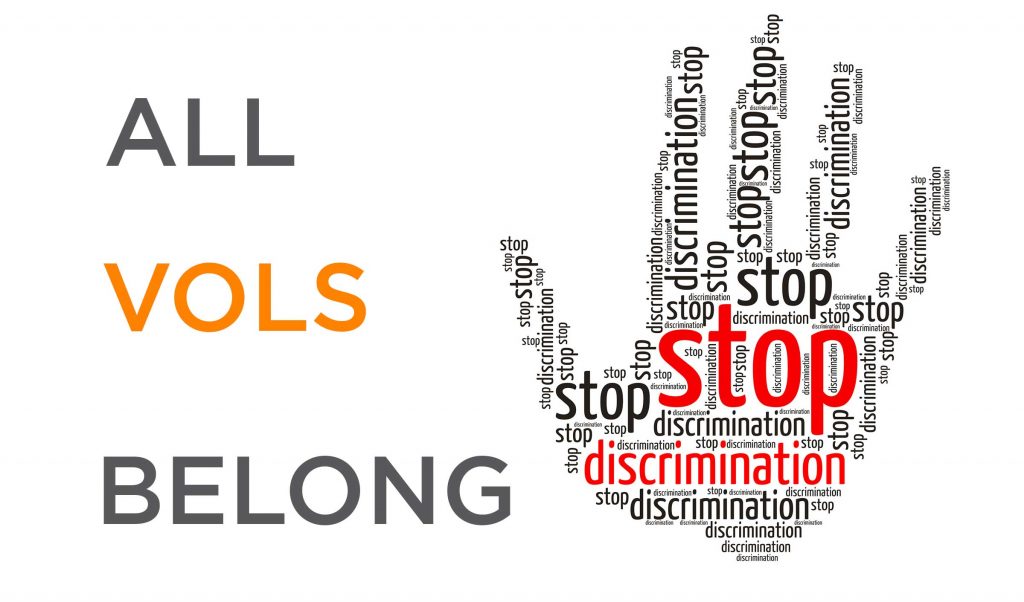
As a College of Social Work committed to the core values of our profession, we strongly reject all forms of hate speech and rhetoric that focuses on the superiority of one group over other groups. We recognize and affirm the inherent dignity and worth of ALL persons. Moreover, we are committed to challenging all forms of hate speech and other acts of racism and bigotry wherever they are found, including our own campus.
Our professional organization, the National Association of Social Workers (NASW) defines racism is as “the ideology or practice through demonstrated power or perceived superiority of one group over others by reasons of race, color, ethnicity, or cultural heritage…” and that “…racism is manifested at the individual, group, and institutional level.” A core component of our social work curriculum is the development of and commitment to cultural competency. According to NASW’s Standards of Cultural Competence (2015), cultural competency refers to “the process by which individuals and systems respond respectfully and effectively to people of all cultures, languages, classes, races, ethnic backgrounds, religions, spiritual traditions, immigration status, and other diversity factors in a manner that recognizes, affirms, and values the worth of individuals, families, and communities and protects and preserves the dignity of each” (p. 13). Cultural competence also recognizes the ways in which the values of the dominant society may conflict with the values of historically oppressed, underrepresented, and underserved populations.
These concepts enumerated by our national organization are the result of a long history of our profession working against oppression in all its forms. In recent years some of us may have considered the work against discrimination and oppression to not be as necessary, using terms such as “post-racial” but now more than ever, we see that complacency can never be our response to forms of hate.
Now is an especially important time to draw upon our enduring social work values of respect for the inherent dignity and worth of every person and to continuously strive to end discrimination, oppression, poverty, and other forms of social injustice with respect to race, ethnicity, national origin, color, sex, sexual orientation, gender identity or expression, age, marital status, political belief, religion, immigration status, and mental or physical ability. We must move forward guided by the inspirational words of Nelson Mandela from his 1994 autobiography, Long Walk to Freedom: “No one is born hating another person because of the color of his skin, or his background, or his religion. People must learn to hate, and if they can learn to hate, they can be taught to love, for love comes more naturally to the human heart than its opposite.“
The College of Social Work is committed to assuming a leadership role in challenging racism at both the personal and societal levels. As interim chancellor Wayne Davis said, “We are at a crossroads. Instead of accepting hate, we must denounce it. Instead of ignoring racism, we must name it and confront it. We must continue a dialogue through this moment to make Rocky Top a better place to be.”
Reporting an Incident Related to Bias at UT
From the University’s Office of Equity & Diversity:
Reporting Discrimination or Harassment
University policy prohibits discrimination or discriminatory harassment based on race, color, religion, sex (including sexual harassment), marital status, parental status, sexual orientation, gender identity, national origin, disability, age, genetic information, veteran status, or any other characteristic protected by federal or state law. Those who report or witness discriminatory harassment are protected by the university from retaliation for their participation in an investigation or proceeding.
Students, faculty, and staff are encouraged to be aware of these policies and of the steps that can be taken to file a complaint or report potential violations of the policies.
You are encouraged to consult the following policies:
Employees (including faculty) and applicants for employment
- Equal Employment Opportunity: Policy HR0220, available on the Policy Central website
- Sexual Harassment and Other Discriminatory Harassment: Policy HR0280, available on the Policy Central website
- Title IX sexual misconduct policy
Students
- Hilltopics nondiscrimination policy
- Title IX sexual misconduct policy
Employees and students on the Knoxville campus may review the Office of Equity & Diversity Discrimination Complaint Procedure